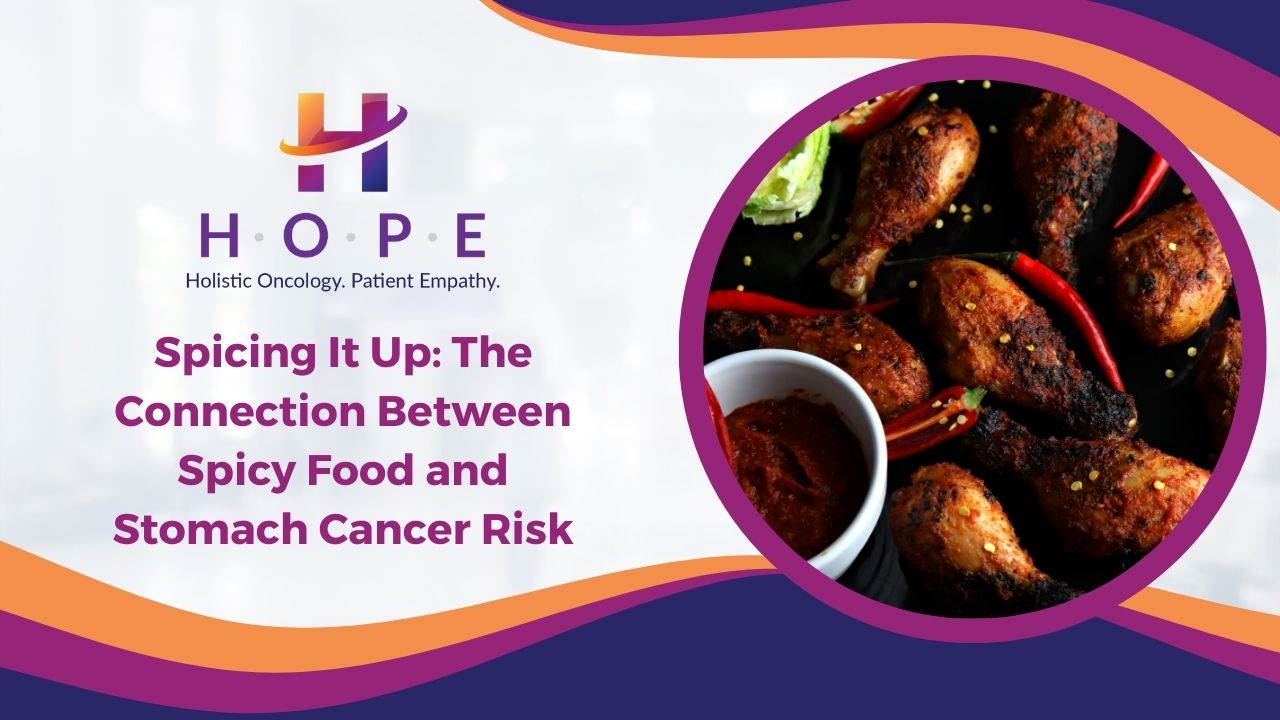Spicing It Up: The Connection Between Spicy Food and Stomach Cancer Risk
Introduction:
The love for spicy food has permeated cultures around the globe, adding vibrant flavors and intense sensations to countless dishes. While many enthusiasts indulge in fiery delights, a question has emerged in recent years: could the consumption of spicy food be linked to an increased risk of stomach cancer? In this article, we delve into the spicy world of gastronomy and explore the scientific evidence surrounding the potential connection between spicy foods and stomach cancer.
Understanding the Appeal of Spicy Food:
Spicy foods, often infused with ingredients like chili peppers, black pepper, and various spices, have a unique appeal that goes beyond taste. The heat generated by these compounds stimulates the release of endorphins, creating a pleasurable sensation often referred to as a “spice high.” This culinary thrill has led to a global obsession with spicy cuisine, with enthusiasts seeking out increasingly fiery dishes.
Capsaicin: The Culprit Behind the Burn:
The burning sensation in spicy foods is primarily attributed to capsaicin, a compound found in chili peppers. Capsaicin binds to receptors in the mouth and triggers a response that the brain interprets as heat. While capsaicin is generally safe in moderation, some studies have explored its potential impact on the digestive system, raising concerns about its association with stomach cancer.
Scientific Studies and Controversies:
Research on the link between spicy food consumption and stomach cancer risk has produced mixed results, creating a level of controversy within the scientific community. Some studies suggest that regular consumption of spicy foods may have a protective effect against stomach cancer, while others propose an increased risk, particularly in populations with a high prevalence of spicy food consumption.
Protective Effects of Spices:
On one hand, certain spices have demonstrated anti-cancer properties in laboratory studies. For example, turmeric, a spice commonly used in curries, contains curcumin, which has shown potential anti-inflammatory and anti-cancer effects. Garlic, another frequently used spice, has been associated with a reduced risk of certain cancers, including stomach cancer.
Irritation and Gastric Health:
The controversy arises when considering the potential irritation that spicy foods can cause to the gastric lining. Some studies suggest that prolonged irritation may contribute to the development of gastric ulcers and inflammation, potentially increasing the risk of stomach cancer. However, the extent to which these factors play a role remains unclear, as other studies indicate no significant correlation.
Cultural Factors and Dietary Patterns:
The relationship between spicy food and stomach cancer risk may also be influenced by cultural factors and overall dietary patterns. In some regions where spicy foods are a dietary staple, individuals may have lower rates of stomach cancer due to a variety of factors, including a higher intake of vegetables and antioxidant-rich foods.
Individual Variations and Sensitivity:
Another aspect to consider is individual sensitivity to spicy foods. Some people may experience gastrointestinal discomfort, such as heartburn or indigestion, after consuming spicy dishes. Prolonged exposure to these discomforts may potentially contribute to gastric issues, but it remains uncertain whether this alone is a significant risk factor for stomach cancer.
Balanced Approach to Spicy Food Consumption:
Rather than completely avoiding spicy foods, a balanced approach to consumption may be more prudent. Moderation is key, and individuals with pre-existing gastrointestinal conditions should be mindful of their tolerance levels. Pairing spicy dishes with a diverse and nutritious diet can help mitigate potential risks and contribute to overall digestive health.
Preventive Measures and Healthy Habits:
While the link between spicy food and stomach cancer remains inconclusive, adopting preventive measures and maintaining healthy habits can contribute to overall well-being. Regular health check-ups, a balanced diet rich in fruits and vegetables, and avoiding excessive alcohol and tobacco use are crucial lifestyle choices that can lower the risk of various cancers, including stomach cancer.
Conclusion:
In the world of culinary delights, the love for spicy food has captivated taste buds globally. While scientific studies on the relationship between spicy food and stomach cancer risk continue to generate debate, it is essential to approach this topic with nuance and an understanding of individual variations. Moderation, coupled with a diverse and nutritious diet, remains a sensible approach for those who savor the heat of spicy cuisine. As research progresses, a clearer picture of the connection between spicy food and stomach cancer risk may emerge, guiding both culinary enthusiasts and health-conscious individuals towards informed dietary choices.

